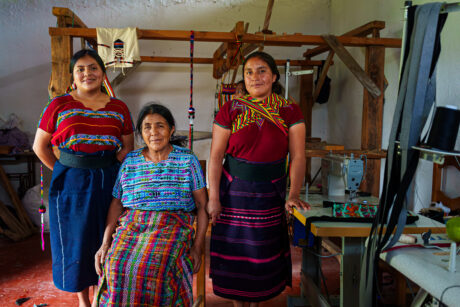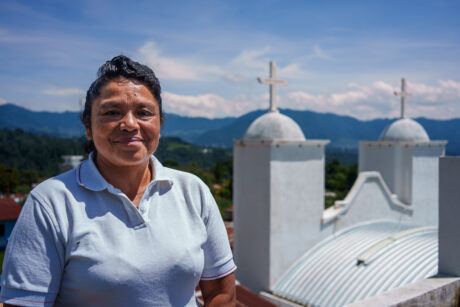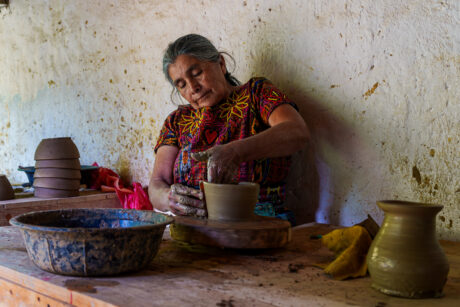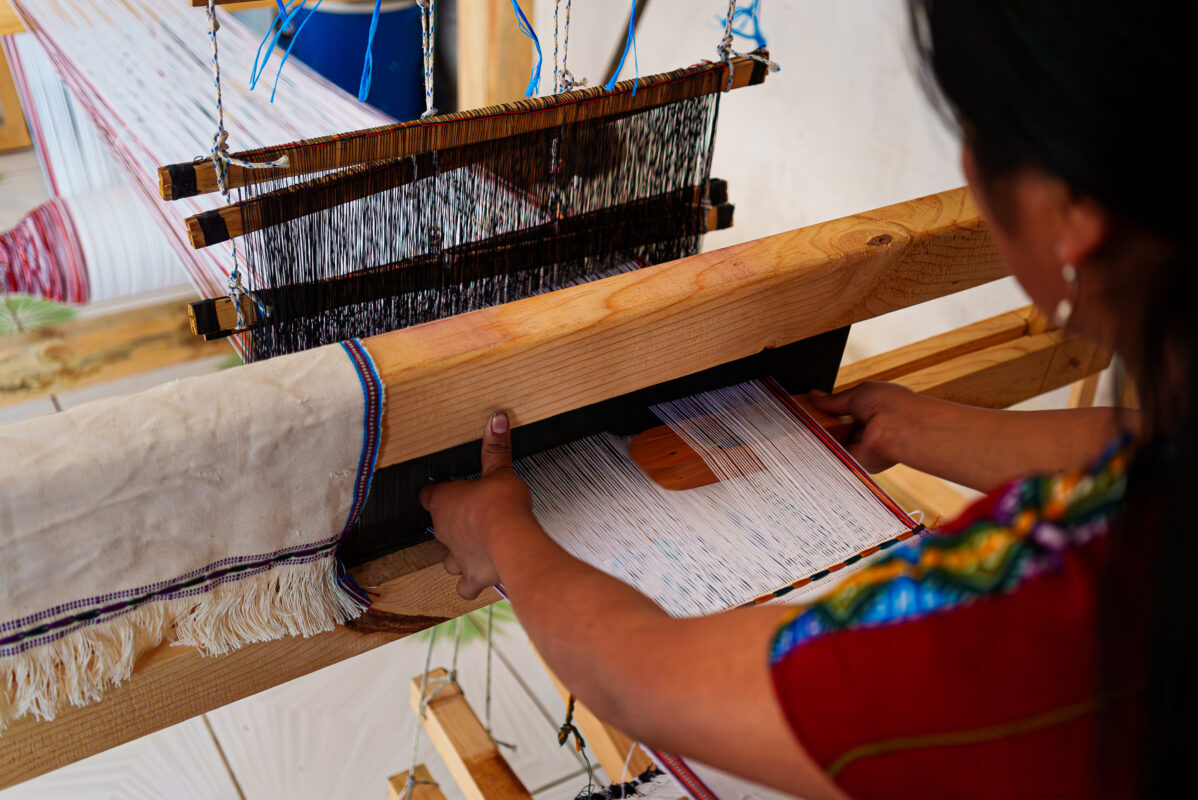Santa Cruz del Quiche, GuatemalaIn August, Santa Cruz del Quiche, Guatemala experienced a week-long power outage. The electric company had a conflict with a neighboring area and shut off the power, which cut service to nine sectors and 500 homes in Santa Cruz.
After days without being able to turn on the lights, charge phones or use appliances, residents blocked the main road for two days to pressure the electric company into a resolution.
This is a common narrative in Guatemala. Land border disputes. Conflict over the use of natural resources. Disagreements about local governance. High incidence of violence against women and girls. There is a dotted line connecting all these issues back to Guatemala’s 36-year internal conflict, and the scars are still fresh.
Unresolved social conflict
The 1996 Peace Accords marked the end of Guatemala’s lengthy civil war, but social conflict has continued for the last 26 years.
“These conflicts can affect both individuals and collective groups of people, cause economic losses due to roadblocks, result in violence, injuries, and even death,” says Norman Martinez, Institutional Strengthening Specialist for the Peacebuilding Project, known as Tejiendo Paz in Spanish.
Tejiendo Paz, is a 6.5-year peacebuilding project funded by the U.S. Agency for International Development (USAID) to reduce social conflict and violence and strengthen social cohesion in the Western Highlands of Guatemala. The project works with Government of Guatemala to increase its capacity to address social conflict, specifically through improved coordination and communication. It is implemented by Creative Associates International with PartnersGlobal and ProPaz.
“Conflict is inherent to interpersonal relationships and therefore present in all societies and communities,” explains Luz Lainfiesta, Deputy Chief of Party of Tejiendo Paz. “The key is to have a strong institutional framework, with the capacity, tools and systems for the prevention, peaceful resolution and transformation of conflicts into opportunities for development.”
Strengthening institutions, building capacity
Government leadership and institutional responses are key to resolving conflict and building more peaceful and safe communities. Formed in 2020, the Presidential Commission for Peace and Human Rights (Comisión de Paz y Derechos Humanos, COPADEH), is the government’s institution responsible for preventing and mitigating conflict at national and departmental levels. The effective functioning of COPADEH has taken time though, as it consolidated the previous institutions that had been working on some of these conflicts for years and introduced new staff and a different mandate.
In need of capacity building within the recently formed commission, COPADEH sought support from Tejiendo Paz to train their newly hired staff and increase their capacity to respond to local conflict.
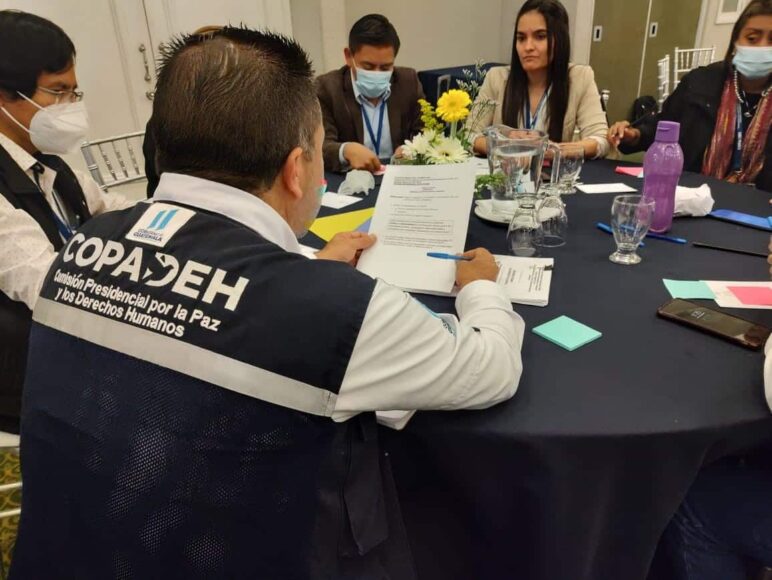
In September 2021, Tejiendo Paz and COPADEH signed an agreement to strengthen the commission. One part of the agreement was to strengthen COPADEH’s executive and technical staff’s capacity to carry out dialogue, negotiations, and conflict management, with a focus on peaceful and sustainable solutions. COPADEH demonstrated their commitment to the training by covering nearly 40 percent of the costs, while requesting technical support from Tejiendo Paz.
“When we have well-trained staff who understand their responsibilities, the institution is stronger and more capable,” says Eddy Cano, COPADEH’s Deputy Director and a committed partner who accompanied Tejiendo Paz’s training process every step of the way. “The training has helped to clarify the responsibilities of the delegates and align us, improving COPADEH’s functionality and allowing us to focus on the tasks at hand.”
Turning on the electricity
Miguel De Leon, the regional delegate for the department of Quiché, was one of the 66 COPADEH representatives that participated and graduated from the conflict mitigation course and has already seen its benefits.
The training “gave me tools to analyze conflict and identify new key actors and to give the approach a new focus to address the conflict,” says De Leon.
De Leon and the other COPADEH representatives have used their training to peacefully transform conflict, including the power outage conflict in Santa Cruz.
“To mitigate the conflict in Santa Cruz, I used three tools that I learned in the training with Tejiendo Paz,” shares De Leon. “First, an analysis tool that helps to compile important information about the conflict like key actors and their role in the conflict, the history and actions taken, and the current reality of the conflict. Then I developed the route to address the conflict and held roundtable discussions.”
De Leon, along with the Governor of Quiche and representatives from the Ministry of Energy and Mines, the Municipality of Santa Cruz, and Civil Society Organizations participated in the roundtable discussions with the electric company, were able to come to an agreement, and the power was turned back on.
The conflict in Santa Cruz lasted a relatively short time and in some ways was a simpler conflict than others that COPADEH has mitigated since the training with Tejiendo Paz began. Of the 32 conflicts that COPADEH has resolved since October 2021, many were long-standing, complex, and tense situations, that required intervention from multiple actors, new strategies, and diverse perspectives.
Linking national and local institutions
Sustainability and local ownership are critical in building peace and overcoming the scars of years of conflict. Tejiendo Paz works with government counterparts to increase their capacity and improve coordination between national, departmental, and municipal levels to respond to community priorities.
Cano has seen that the improvement is apparent to outside institutions and civil society organizations as well.
“We’ve seen an uptick in the number of cases that we’re addressing, and it is not because there are more conflicts, instead it’s because more people are coming to COPADEH for help to address conflict,” says Cano.
Many long-standing conflicts in the Western Highlands are rooted in the government’s limited presence in rural communities. Tejiendo Paz and COPADEH are working to change that by
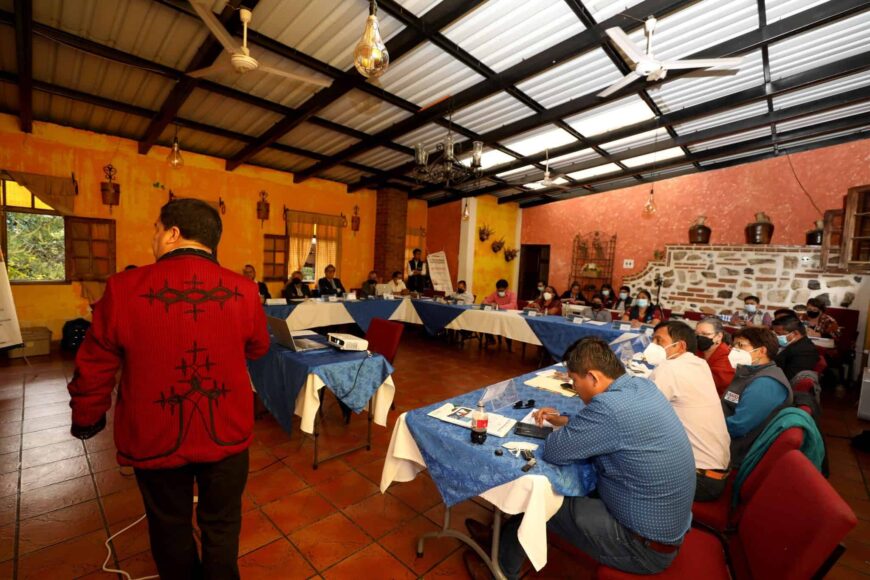
linking their regional delegates with the Departmental Commission on Security and Conflict Management, CODESAC is the Spanish acronym.
The CODESAC is led by the departmental governor and responsible for generating dialogue and coordination between public institutions like COPADEH, civil society organizations, and the private sector, to implement strategies, plans and programs to address social conflict and prevent escalation into violence.
“Within the national plan of the Government of Guatemala, the priority is to protect the lives of Guatemalans and to live in peace,” says Otto Ervin Macz, former Governor of Quiche and former CODESAC Director.
“Thanks to Tejiendo Paz and with support from USAID, it’s been possible for the CODESAC to build our capacity and strengthen dialogue processes. The effect of those trainings has been shown through the high impact conflicts we’ve been able to resolve that have culminated in peace and tranquility, for so many that live in this beautiful department.”
Tejiendo Paz is helping national institutions like COPADEH, departmental institutions like CODESAC, and individuals like De Leon to address conflict and unite communities so they can come together, find common ground, and transform Guatemala, one conflict at a time.
